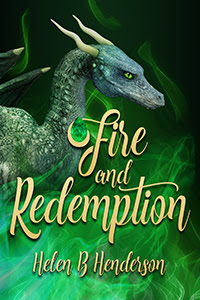One of the first things I get asked when someone learns I am a published author is "Are you a plotter or a pantser?" To avoid the impassioned defense of whatever method the questioner uses or the inevitable proselytizing to change to their side, I've developed a response, "Yes."
How do I justify being both a plotter or pantser? Or anti-plotter, discoverer, or whatever the latest process is.
I write fantasy and historical fiction so a certain amount of preparation or pre-writing needs to be done to get the world fixed in my mind. Shorter works, such as novellas, are usually free-written. However, I do like structure for full-length novels and have a set of forms including a scene storyboard, main character sheets, and a spreadsheet for tracking secondary characters. Depending on the complexity of the works I might create a timeline of who is where.
Because I may storyboard some scenes, I have been called a plotter. A note on the storyboarding. For any given scene it can be complete with dialog and transitions ready to drag and drop into the manuscript. If additional scenes are written, I don't go back and storyboard. And I complete the character forms as the story unfolds. Some plotters create detailed character sheets on everyone in the novel before starting writing. They also outline in detail the entire story before writing a first draft. I met an author who did that and took twenty years to write his debut novel. There is no second. However, because I also write complete chapters without pre-planning/outlining/storyboarding I've been called a pantser.
As to writing process, my advice is "Don't label yourself. Stub and shorthand where need be to work around a block. Use whatever writing process works for you at any given time for a particular project. It's your story to be captured however it will allow itself to be."
~till next time, Helen

















Great approach. Not using a label works because it gives you the freedom to use whatever process is best for the project.
ReplyDeleteOver the years I've found more than a few writers who got hung up on their "process" (which is a word I grew to hate) and spent more time worrying about how they were writing rather than writing. Thanks for stopping by.
DeleteI've known pantsers who swear by their lack of planning, but only one plotter who is adamant about planning for two months before writing a word. Most 'plotters' (like me) allow for serendipity. I guess there’s no blog hop post this week, but here’s my process.
ReplyDelete
DeleteUsing structure and allowing for "serendipity" is the best of both worlds. Unfortunately not everyone can adjust from the plotter tone (documenting) to storytelling tone. Another common problem is that they start their trip following their map and can't vary, even when the characters demand to take over telling their story Or they spend so much time reupdating their outline they lose the muse.
I agree, there are so many that fall in the gray area between being a plotter and panster
ReplyDeleteI loosely plot, but let my characters take over. I can't imagine being so detailed as to fill out the character profiles, etc, that plotters recommend, but I know that works for some people. I'd never get the book written!
ReplyDelete